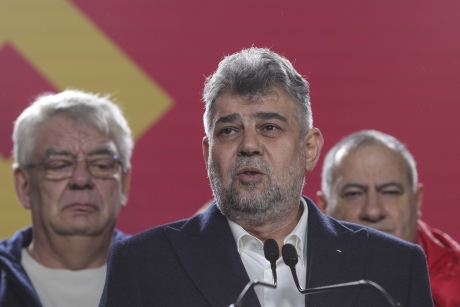Prime Minister Marcel Ciolacu made a bold statement on Tuesday, asserting that Romania cannot have a future alongside Russia. This declaration came in response to opinions circulating on social media, suggesting that Romania could become part of Russia, purportedly originating from an account linked to an ideologue of Vladimir Putin. Ciolacu’s firm stance underscores the complex relationship between Romania and Russia, reflecting broader geopolitical tensions and historical animosities.
The Prime Minister’s remarks signal a clear departure from any potential alignment with Russia, emphasizing Romania’s commitment to its own sovereignty and independence. In a time when global politics are increasingly polarized, Ciolacu’s words carry significant weight, resonating with both domestic and international audiences. By unequivocally rejecting the notion of a future alongside Russia, he sets a precedent for Romania’s foreign policy direction and strategic positioning in the region.
The context in which Ciolacu’s statement was made is crucial for understanding its significance. Relations between Romania and Russia have been strained for decades, marked by historical grievances, territorial disputes, and divergent geopolitical interests. The specter of Russian influence looms large over Eastern Europe, with Romania situated at the crossroads of competing power dynamics. Ciolacu’s assertion serves as a reassertion of Romania’s commitment to European values, NATO membership, and Western alliances.
The reference to an account associated with a Putin ideologue adds another layer of complexity to the situation. It highlights the role of disinformation and propaganda in shaping public opinion and influencing political discourse. The spread of false narratives about Romania’s future can be seen as a deliberate attempt to sow confusion and sow discord within Romanian society. Ciolacu’s swift response aims to counter such misinformation and reaffirm Romania’s national identity and aspirations.
The implications of Ciolacu’s statement extend beyond mere rhetoric, carrying concrete policy implications. By publicly denouncing any prospect of aligning with Russia, he signals to both domestic and international stakeholders that Romania’s foreign policy priorities lie elsewhere. This could have repercussions on diplomatic relations, economic cooperation, and security alliances in the region. It also underscores the need for Romania to assert its own strategic autonomy and pursue a foreign policy that aligns with its national interests.
In the broader context of European politics, Ciolacu’s stance aligns Romania with other Eastern European countries that have adopted a cautious approach towards Russia. The legacy of Soviet domination and the memory of past conflicts continue to shape perceptions of Russia in the region. By rejecting the notion of a future alongside Russia, Ciolacu positions Romania firmly within the Western camp, seeking to strengthen ties with EU partners and transatlantic allies.
As Romania navigates a complex geopolitical landscape, Ciolacu’s statement serves as a clarion call for unity and resolve. It underscores the importance of safeguarding Romania’s sovereignty, territorial integrity, and national security in the face of external pressures. By articulating a clear vision for Romania’s future, Ciolacu sets a course for the country that is firmly rooted in its European identity and democratic values.
In conclusion, Prime Minister Marcel Ciolacu’s assertion that Romania cannot have a future alongside Russia encapsulates the challenges and opportunities facing the country in a rapidly changing world. It reflects Romania’s determination to chart its own course, free from external interference and manipulation. As Romania asserts its place on the global stage, Ciolacu’s words serve as a reminder of the country’s resilience, determination, and commitment to a future that is firmly anchored in European values and aspirations.


